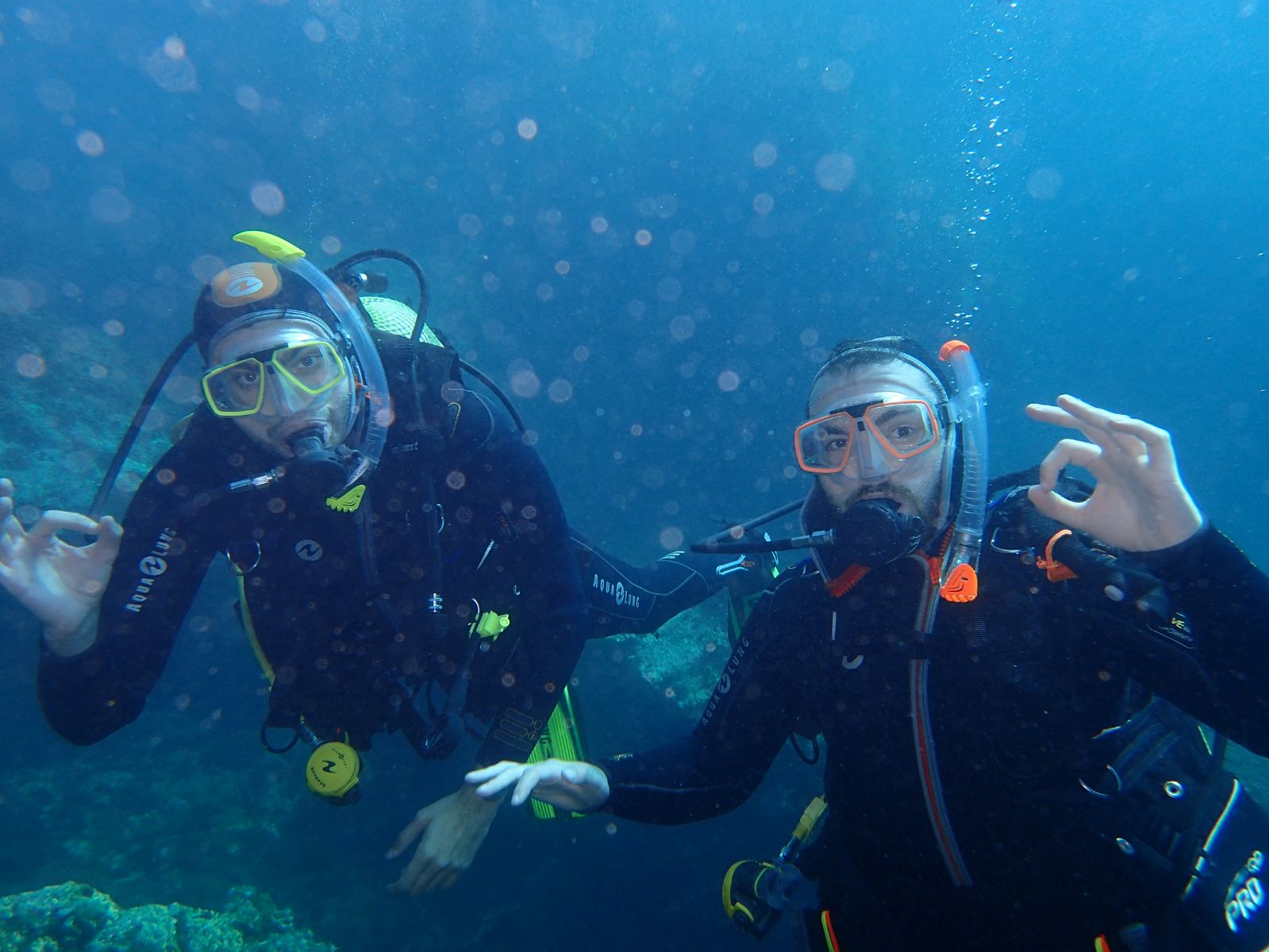Freediving and scuba diving
In this overview we have summarized evidence on the benefits of scuba diving and freediving (including spear fishing) on physical and mental health.
The conclusions derived are based on existing scientific studies, evidence from websites and the personal experience of professional, experienced scuba and freediving instructors, shared through an open-ended questionnaire. Although several webpages emphasize that the practice of freediving is beneficial for health and well-being, scientific literature on this is scarce.

Well-being and psychological aspects
Free divers frequently emphasize the mental dimension of their sport, which has two interconnected aspects: first, mental control, which creates a body-mind that reacts as it has been trained to; and second, a meditative state of mind. Hence, freediving is not only an encounter with water, but the diver also dives into themselves in a mindful experience. One of the best examples of the physical and psychological effects of scuba diving is derived from people suffering from physical disabilities. People with disabilities who scuba dive indicate it brings them a positive psychological and social benefits. They form new friendships and develop a close trust-based relationship with their companions, as the diving buddy system means they have to be mutually reliant whilst underwater. Many divers also experience a salutogenic effect, described as a state of well-being felt immediately after diving. Other studies found that scuba divers experienced a lower perceived level of stress, linked to an increase in well-being and also a decreased negative mood in terms of tension-anxiety, depression, anger, and confusion. Furthermore, military veterans who have experienced life-changing injuries reported an overall improvement in psychosocial well-being scores after scuba diving therapy, most notably relating to a decrease on their anxiety levels, insomnia and depression. From a psychological point of view, an analysis of scuba diving suggests that the salutogenic effect stems from experiencing a state of full consciousness and openness associated with slow, deep breathing. According to studies, these psychological characteristics are similar to those developed during meditation, suggesting that scuba diving could have a similar effect to meditation, in that it induces a state of mindfulness.
Physical health
Historically, scuba diving has been associated with the fit and able-bodied. However, several studies have demonstrated that the feeling of weightlessness makes it a manageable challenge for people with physical injuries. Studies have shown that divers with different physical disabilities were able to move better when diving than when on land, and they enjoyed the new physical and psychological challenge of scuba diving. At a more physiological level, it has also been postulated that scuba diving could be beneficial as a therapy, as it alters blood gases such as oxygen and nitrogen when diving at a certain pressure. This is particularly important for divers with limb amputations, and have a higher risk of poor blood circulation.
Many people around the world, of all ages and backgrounds are passionate about scuba diving and freediving. Apart from scientific evidence, several websites also promote these as healthy underwater activities. They suggest that diving benefits mental and physical health, and the collective opinion of many divers is that diving is “relaxing. From a physical point of view, many websites state that scuba and freediving are a good way to burn calories and train several parts of the body (core, back muscles and glutes) because of the natural resistance of the water. From a psychological point of view, many parallelisms are made between diving and a meditative state, enabling divers to obtain a calm, relaxing state of mind. Divers have to focus on respiration and the present moment – both key aspects of meditation. Thus, in the same way as meditation, diving is thought decrease anxiety and stress, and improve attention span, self-awareness, and sleep.
Finally, the questionnaires posed to free and scuba divers during the project have provided first-hand perceptions of these experienced professional swimmers on the potential links between diving activities in sea and health and well-being, and that needs further research in the future with experimental studies. All those interviewed agree that these activities benefit the physical condition of human body as well as well-being, and one of the major benefits of diving activities is relaxation. They particularly report benefits for people with mental illness and physical disabilities, including tetraplegia, and improved mood in people being treated for illnesses such as cancer.


















